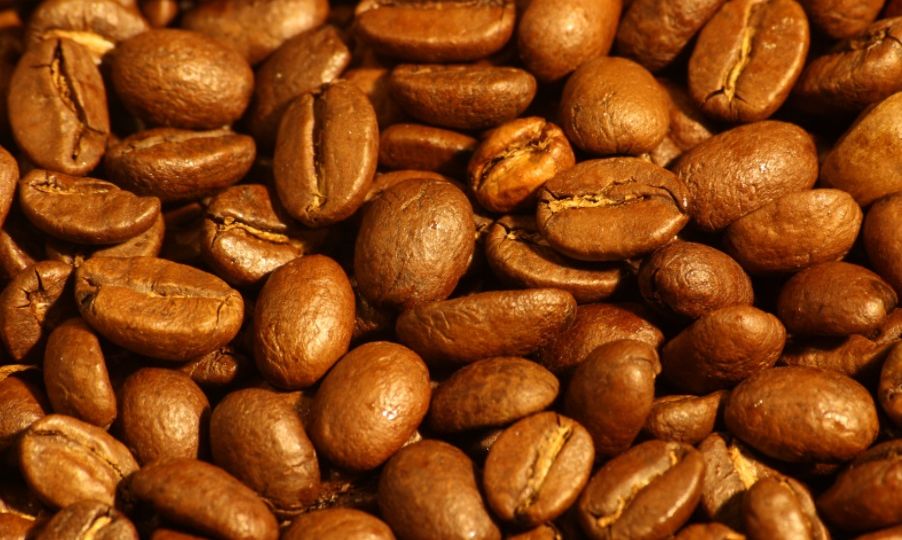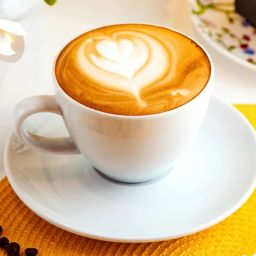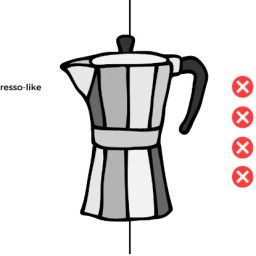
When it comes to brewing a delicious cup of medium roast coffee, one of the critical elements you need to get right is the water temperature. This seemingly small detail can significantly impact the flavors extracted during brewing, making it essential to understand and control.
The ideal temperature range for brewing medium roast coffee is between 188°F and 203°F (87-95°C). This range is considered optimal for extracting the full spectrum of flavors that medium roast coffee has to offer—balancing sweetness, acidity, and bitterness without over-extracting undesirable flavors.
Key Takeaways
- Precision Matters: Getting the temperature just right can make the difference between a good and a great cup of coffee. Precise temperature control ensures that the coffee’s natural flavors are efficiently extracted, enhancing your brewing experience.
- Impact of Temperature Variations: Temperature fluctuations can alter the taste profile of your coffee. Too high a temperature can lead to over-extraction, making the coffee bitter. Conversely, too low a temperature might not extract enough flavor, resulting in a weak, underwhelming cup.
- Roast level: Different roasts can require slightly different temperatures.
- Brewing method: Methods like espresso or French press might need adjustments in temperature.
- Personal taste: Ultimately, your preference plays a significant role. Experiment within the recommended range to find what tastes best to you.
The Science of Coffee Brewing Temperatures
Temperature plays a pivotal role in brewing coffee, particularly with medium roast beans. The right temperature extracts the ideal balance of flavors—too hot, and your coffee could become bitter; too cool, and it might taste weak and watery. For medium roast, maintaining water temperatures between 188°F and 203°F (87-95°C) optimizes the extraction of oils and acids that give coffee its rich and vibrant flavors.
How Temperatures Affect Extraction
The extraction process in coffee brewing is all about pulling the best flavors out of the beans. At higher temperatures, the water can dissolve more compounds more quickly, which sounds great but can actually lead to over-extraction.
Over-extracted coffee often tastes bitter and harsh. On the other hand, lower temperatures might not extract enough from the coffee beans, leading to a flat and underwhelming brew. The trick is finding that temperature sweet spot where the best flavors are extracted without the negatives.
Brewing Methods
Different brewing methods can require slight adjustments in temperature:
- Drip brewers work well within the standard range but may vary depending on the specific model.
- Espresso machines often need slightly higher temperatures to quickly extract coffee under high pressure.
- French presses, which involve steeping coffee grounds in water, can benefit from temperatures on the lower end of the spectrum to avoid over-extraction.
Geographic Elevation
The elevation of the place where you brew your coffee can also affect the boiling point of water, which in turn affects your brewing temperature. At higher altitudes, water boils at a lower temperature due to decreased atmospheric pressure.
This means if you’re brewing coffee in a mountainous area, you might need to adjust your brewing temperature upwards to compensate for the lower boiling point.
Optimal Temperatures for Different Brewing Methods
Brewing the perfect cup of medium roast coffee starts with understanding how different brewing methods interact with temperature. Each method can highlight different aspects of your coffee, depending on how you apply heat.
- Pour-Over: For pour-over coffee, aim for a temperature between 195°F and 205°F (90-96°C). This range helps to extract the delicate flavors typical of a medium roast without over-extracting bitter elements.
- Espresso: Espresso requires a slightly higher temperature, typically between 198°F and 204°F (92-95°C). The high pressure of espresso machines combined with these temperatures extracts a rich, deep flavor quickly.
- French Press: The French press is more forgiving and does well with temperatures at the lower end of the spectrum, around 195°F to 200°F (90-93°C). This helps avoid over-extraction while still releasing the full flavor of the beans.
Adjusting Temperatures for Taste and Extraction
Understanding how to adjust your brewing temperatures can enhance the flavor profile and strength of your coffee:
- If your coffee tastes too bitter, consider lowering the temperature slightly to reduce over-extraction.
- If it’s too sour or weak, increasing the temperature can help extract more flavor from the beans.
Fine-Tuning Your Brew
For those looking to refine their brewing skills, consider experimenting with slight temperature adjustments:
- Use a digital thermometer to precisely measure water temperature.
- Adjust in small increments of 1-2 degrees to see how it affects the flavor.
The Role of Water Quality in Brewing
The quality of water used in brewing cannot be overlooked. Here are some factors to consider:
- Mineral Content: Ideal brewing water has a balanced mineral content—too hard can make your coffee taste dull, while too soft may not extract flavors effectively.
- pH Level: The pH of water should be close to neutral. Water that is too acidic or too alkaline can alter the taste of your coffee.
- Experiment with different types of filtered water to find which best complements your coffee.
FAQs
What is the best water temperature for a pour-over medium roast?
For a pour-over medium roast, the best water temperature is typically between 195°F and 205°F (90-96°C). This range helps to optimally extract the coffee’s rich flavors without pulling out too many bitter compounds.
How does water temperature affect the acidity and bitterness of medium roast coffee?
Water temperature plays a crucial role in determining the acidity and bitterness of your coffee. Higher temperatures tend to extract more acids and bitter compounds, making the coffee taste sharper and possibly more bitter. Lower temperatures, on the other hand, might not extract enough of these compounds, leading to a milder flavor.
Can I use boiling water to brew medium roast coffee?
It is not recommended to use boiling water to brew medium roast coffee as it can cause over-extraction and lead to a bitter taste. Ideally, allow the boiling water to cool slightly to a temperature range of 195°F to 205°F (90-96°C) before brewing.
How do I adjust brewing temperatures for different altitudes?
At higher altitudes, water boils at a lower temperature due to decreased atmospheric pressure. To adjust brewing temperatures for different altitudes, increase the heat slightly if you are in a higher altitude area to compensate for the lower boiling point. This ensures that the water is hot enough to effectively extract the coffee flavors.
Final Thoughts
Mastering the ideal water temperature for brewing medium roast coffee can transform your brewing experience and enhance your morning ritual. Remember, the magic happens between 188°F and 203°F (87-95°C). Within this range, each degree can unveil new aspects of your coffee’s profile, from its boldness to its subtleties.









